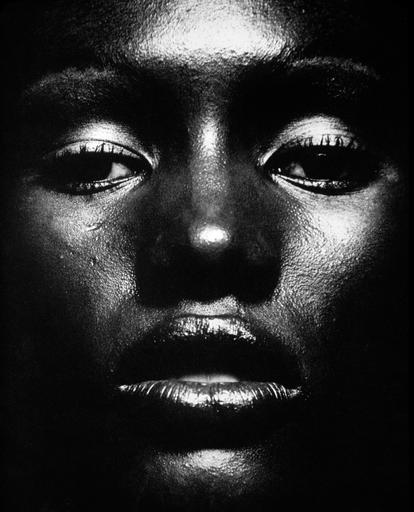MAKE A MEME
View Large Image

| View Original: | "The_Many_Faces_of_Grace_Jones"_|_Portrait_of_Grace_Jones_by_Anthony_Barboza_-_1970s.jpg (1655x2048) | |||
| Download: | Original | Medium | Small | Thumb |
| Courtesy of: | www.flickr.com | More Like This | ||
| Keywords: grace jones gracejones anthony barboza anthonybarboza (Credit: All rights belong to the photographer) (Introduction from "The Frog & The Princess" track [1985 "Slave to the Rhythm" album] as read out by Ian McShane & excerpted from Jean-Paul Goude's 1982 book, "Jungle Fever") I was amazed when I first saw Grace Jones. She was the first to take radical fashion out of its predictable Parisian context and bring it into the music scene, where I had always thought it belonged. The first night watching her in Le Mouche, I had already decided to work with her That night, she was singing her hit song "I Need a Man" to a room full of shrieking gay Bobby-soxers. The ambiguity of her act was that she herself looked like a man --- a man, singing "I Need a Man" to a bunch of men. I could see how the average guy could get a little scared by her physical appearance. It's so powerful. I thought she was... I thought she was great. I photographed her in different positions. I cut her legs apart, lengthened them, turned her body to face the audience. Soon, I found myself living to the very fast rhythms of Grace Jones. We would go out dancing, all night, every night. I was completely neglecting my work. An intense, hysterical romance developed between Grace and I. But I ran out of money and realised I had to stop all this bullshit and go back to work. I had this idea of using Grace as the ideal veichle for my work. She had inspired me. On tour, we used to improvise. Thinking of an idea at breakfast and working it out directly on stage. I decided, deliberately, to mythologise Grace Jones. Black, shiny, muscular people... ahh, aerodynamic in design. 'Twas to emphasise this belief that I painted Grace Jones blue-black. I am no longer sure what I fell in love with: Grace or my idea of what Grace should be. But in the two years following the birth of our son, there was nothing else in my life. Grace let me take her over completely. But then I discovered that what I was making was speeding too far beyond what was there. By the time our 'One Man Show' reached the U.S., I knew I'd lost her... (Credit: All rights belong to the photographer) (Introduction from "The Frog & The Princess" track [1985 "Slave to the Rhythm" album] as read out by Ian McShane & excerpted from Jean-Paul Goude's 1982 book, "Jungle Fever") I was amazed when I first saw Grace Jones. She was the first to take radical fashion out of its predictable Parisian context and bring it into the music scene, where I had always thought it belonged. The first night watching her in Le Mouche, I had already decided to work with her That night, she was singing her hit song "I Need a Man" to a room full of shrieking gay Bobby-soxers. The ambiguity of her act was that she herself looked like a man --- a man, singing "I Need a Man" to a bunch of men. I could see how the average guy could get a little scared by her physical appearance. It's so powerful. I thought she was... I thought she was great. I photographed her in different positions. I cut her legs apart, lengthened them, turned her body to face the audience. Soon, I found myself living to the very fast rhythms of Grace Jones. We would go out dancing, all night, every night. I was completely neglecting my work. An intense, hysterical romance developed between Grace and I. But I ran out of money and realised I had to stop all this bullshit and go back to work. I had this idea of using Grace as the ideal veichle for my work. She had inspired me. On tour, we used to improvise. Thinking of an idea at breakfast and working it out directly on stage. I decided, deliberately, to mythologise Grace Jones. Black, shiny, muscular people... ahh, aerodynamic in design. 'Twas to emphasise this belief that I painted Grace Jones blue-black. I am no longer sure what I fell in love with: Grace or my idea of what Grace should be. But in the two years following the birth of our son, there was nothing else in my life. Grace let me take her over completely. But then I discovered that what I was making was speeding too far beyond what was there. By the time our 'One Man Show' reached the U.S., I knew I'd lost her... | ||||